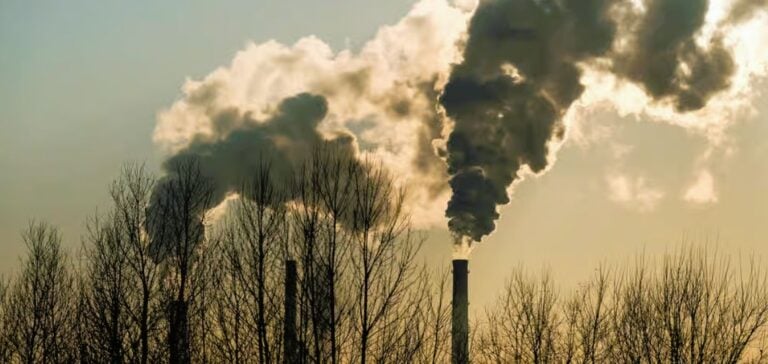Global warming, mainly due to greenhouse gas emissions, has accelerated at an alarming rate in recent decades. According to a recent study published in Earth System Science Data, the global average temperature rose by 0.26°C per decade between 2014 and 2023, reaching a total warming of 1.19°C since the pre-industrial era. This study, carried out by some sixty researchers, uses the rigorous methods of the Intergovernmental Panel on Climate Change (IPCC), providing up-to-date indicators for global climate negotiations.
Impact of fossil fuels
The main causes of this increase are record greenhouse gas emissions, resulting largely from the massive use of fossil fuels such as oil, gas and coal. Scientists estimate these emissions at around 53 billion tonnes of CO2 equivalent per year over the period 2013-2022. This situation is exacerbated by a reduction in atmospheric cooling caused by the drop in particulate pollutants, particularly in China, Europe and the United States. Pierre Friedlingstein, from the University of Exeter and CNRS (Centre National de la Recherche Scientifique), stresses the urgent need for concrete measures to reduce emissions.
“Each additional increment of warming increases the risk of extreme weather events,” he said, echoing the recent heatwaves and floods that have hit various countries.
The Role of the World Climate Conferences
The updated data from this study are crucial for discussions at the COPs. The negotiations in Bonn, in preparation for COP29 in Baku, are crucial to achieving the objectives of the Paris Agreement. Climatologist Valérie Masson-Delmotte points out that collective action can bear fruit, citing the protection of the ozone layer as an example of success. The fight against global warming also depends on managing the “residual carbon budget”, which represents the amount of CO2 we can still emit while maintaining a chance of limiting warming to 1.5°C. This budget is now estimated at just 200 billion tonnes, or around five years’ worth of emissions at the current rate.
Signs of Optimism
Despite the seriousness of the situation, the researchers identify some positive elements. The rate of increase in CO2 emissions has slowed over the last decade, offering a glimmer of hope.
“This is a critical decade,” says the study, “where we can expect to see global emissions reach their peak before they start to decline significantly.”
Piers Forster, from the University of Leeds, notes that the report contains “a little optimism”. He emphasizes that sustained efforts can reverse the current trend. However, this will require concerted action on a global scale to reduce dependence on fossil fuels and promote renewable energy sources.
The future of global efforts to contain global warming will depend on the ability of nations to work together and implement effective strategies to limit greenhouse gas emissions. The results of this study clearly show that time is running out, but also that collective action can make a significant difference.






















